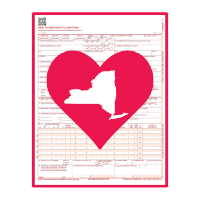CA OMFS: Physician Services Fee Schedule Update Effective 10/1/2019

A new order from the Administrative Director of California’s Division of Workers’ Compensation (DWC) updates the Physician and Non-Physician Practitioner Services portion of the Official Medical Fee Schedule (OMFS).
The reimbursement changes announced on October 4, 2019, are retroactive to dates of service rendered on or after October 1, 2019.
The changes include updates to the RVU files, NCCI Edits, MUEs, and GPCI locality mapping, although the latter did not contain any changes that would affect reimbursements.
In Newsline No.: 2019-76, the DWC announced the order to conform the OMFS for Physician Services / Non-Physician Practitioner Services to Medicare’s October fee schedule release and quarterly updates.
These changes, which are incorporated into California Code of Regulations (CCR) Section 9789.19, include:
- The adoption of Medicare’s National Physician Fee Schedule Relative Value File RVU19D October 1, 2019 quarterly update. The RVU19D file is available on the Centers for Medicare and Medicaid Services (CMS) website.
- The adoption of Medicare’s quarterly update to the Practitioner Procedure-to-Procedure (PTP) NCCI Edits. The CMS website lists the new NCCI Edits.
- The adoption of Medicare’s NCCI Medically Unlikely Edits (MUE) October 1, 2019 quarterly update for Practitioner services. The Practitioner services MUE table is available on the CMS website.
- The adoption of Medicare’s ZIP Code to Carrier Locality files October 1, 2019 quarterly update. The GPCI locality mapping files can also be found on the CMS website.
Relative Value File
Effective October 1, 2019, the DWC adopted the CMS Medicare National Physician Fee Schedule Relative Value File RVU19D October 1, 2019 quarterly update.
With the adoption of the new RVU file, there are reimbursement changes for two surgical CPT codes.
The table below summarizes the reimbursement changes effective for all dates of service on or after October 1, 2019. In the past, DaisyBill published the exact reimbursement change. This is no longer possible due to the adoption of GPCI locality mapping effective January 1, 2019.
Procedure Code |
RVU Change |
|
96931 |
Reimbursement increased due to: MP RVU INCREASE from 0.04 to 0.06 |
|
96934 |
Reimbursement decreased due to: PE RVU REDUCE from 1.94 to 1.71 MP RVU INCREASE from 0.04 to 0.05 |
|
In addition, 44 new billing codes were added, 23 J-codes and 21 Q-codes. The OMFS lists the reimbursement for these codes as By Report (BR). For a CPT code where ‘BR’ is listed as the OMFS Expected reimbursement amount, providers must determine a reasonable amount to charge based on comparable procedure codes.
For help figuring out the Relative Value Unit system, check out these helpful resources:
To determine the impact of these reimbursement changes on your practice, subscribe to the DaisyBill Wizard and use the Calculator. It is simple to know the new reimbursements. Plus, you can sign up for a 3-day free trial.
Geographic Pricing Cost Index (GPCI)
Also in Newsline No.: 2019-76, the DWC announced the adoption of the CMS ZIP Code to Carrier Locality files October 1, 2019 quarterly update, for GPCI locality mapping. This file did not contain any changes that would affect reimbursements based on GPCI locality mapping.
For more information on how GPCIs impact reimbursements watch this short video: 9 Minute How-To: Geographic Practice Cost Indices (GPCIs)
We’ll keep readers updated on any further OMFS changes, and — as always — DaisyBill clients can rest assured that we incorporate the latest changes into our OMFS Calculator.
Our Work Comp Wizard includes our OMFS Calculator, which easily calculates reimbursements for workers’ comp services. Enjoy a free trial of the Work Comp Wizard, and see what DaisyBill can do for your office.
TRY THE CALCULATOR
DaisyBill provides content as an insightful service to its readers and clients. It does not offer legal advice and cannot guarantee the accuracy or suitability of its content for a particular purpose.







